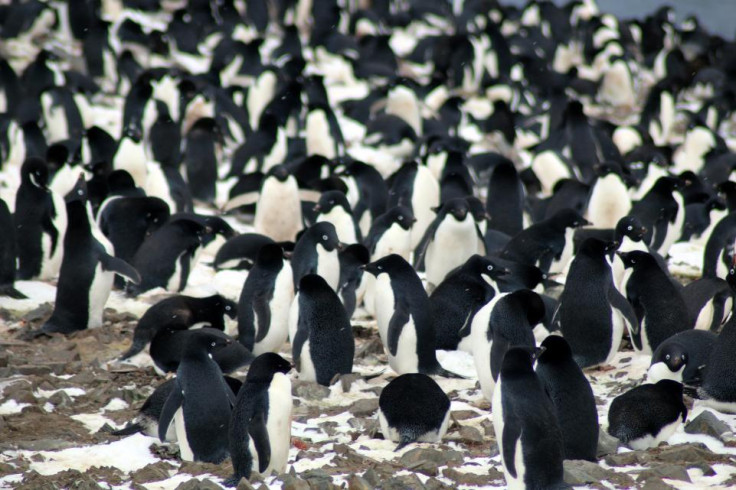Watch: 'Mega-colony' of 1.5m penguins discovered on Antarctica's remote Danger Islands
Scientists discovered these colonies of Adélie penguins by noticing the staining of their distinctive dropping from a Nasa satellite.
Giant 'mega-colonies' of penguins have been discovered among the remote islands of Antarctica, easing fears their numbers had been in decline for decades due to climate change.
Scientists said more than 1.5 million Adélie penguins were thriving in the Danger Islands, a remote archipelago of nine islands at the northernmost tip of Antarctica.
The isolated location of these islands, which covers some 35 km, has left them less affected by the affects of climate change and human activity.
The researchers, who detail the discovery in the journal Scientific Reports, said: "Our survey reveals that the Danger Islands host 751,527 pairs of Adélie penguins, more than the rest of Antarctic Peninsula region combined, and include the third and fourth largest Adélie penguin colonies in the world."
However, their discovery came quite by chance.
Scientists noticed large amounts of tell-tale staining from Penguin droppings, or guano, around the coast of the region from Nasa satellite images in 2014.
The team set about organising a trip to the area to get more detailed information in the field.
However, the Danger Islands are notoriously difficult to reach, with large slabs of sea-ice floating around the archipelago even in summer, making it hazardous for shipping.
An expedition was organised in December 2015 where the team saw the colonies for themselves and used drones to record overhead views.

"The drone lets you fly in a grid over the island, taking pictures once per second. You can then stitch them together into a huge collage that shows the entire landmass in 2D and 3D," one of the team Prof Hanumant Singh from Northeastern University told the BBC.
Researchers said they have found "a major hotspot of abundance" of penguins in the region, where colonies, particularly in western Antarctica, had thought to have been in decline for many years.
Scientists had theorised the decline was linked to reductions in sea-ice, which is an important habitat for krill, the small crustaceans that form a key part of the penguin diet.
"This exciting discovery shows us just how much more there still is to learn about this amazing and iconic species of the ice," Rod Downie, head of polar programmes at WWF told The Independent.





















